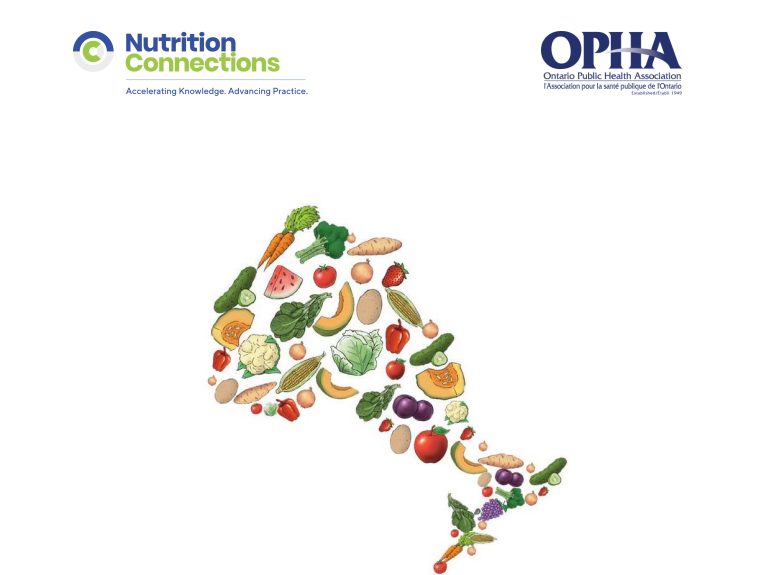This report provides a cross-sectional, descriptive analysis of vegetable and fruit consumption, food insecurity, self-rated health, and physical activity. It explores some determinants of healthy eating and health. The data source used is the Canadian Community Health Survey 2017. When comparing Ontario to Canadian estimates there was little difference. The report also highlights the impact of COVID-19 on food insecurity and some potential policy implications.
Key takeaways include:
- In Ontario, 13.3% of all households experienced some level of marginal, moderate or severe food insecurity.
- Households headed by lone female parents with children under 18 and people who self-identified as being Indigenous reported the highest rates of food insecurity.
- The impact of the COVID-19 pandemic highlights the need for decision-makers to assume a targeted, upstream approach that addresses income and other social determinants of health. The intent of taking such an approach is to promote the physical and mental health of the population and to reduce chronic disease and the burden of chronic disease to the health care system and economy.
Published By: Nutrition Connections, Ontario Public Health Association. Authors: Roblin L, Smith D, Loxley R.
Publication Date: March, 2021
Click here to view: Eating in Ontario: What Do We Know?








